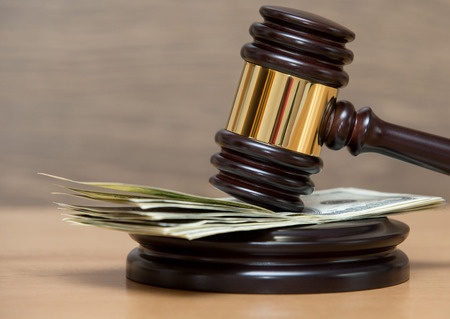Overview
 On April 24, 2020, the Illinois Supreme Court weighed in on the increasing tension between creditors seeking to collect what is legally due to them and individual debtors fighting to hang on to cash during uncertain economic times surrounding the COVID-19 pandemic. The Order, captioned “In re Illinois Courts Response to COVID-19 Emergency/Impact on Post-Judgment Proceedings,” expands on an Executive Order issued by Illinois Governor J.B. Pritzker earlier this month concerning collections activity by creditors.
On April 24, 2020, the Illinois Supreme Court weighed in on the increasing tension between creditors seeking to collect what is legally due to them and individual debtors fighting to hang on to cash during uncertain economic times surrounding the COVID-19 pandemic. The Order, captioned “In re Illinois Courts Response to COVID-19 Emergency/Impact on Post-Judgment Proceedings,” expands on an Executive Order issued by Illinois Governor J.B. Pritzker earlier this month concerning collections activity by creditors.
The Order is specifically limited to “Covered Supplemental Proceedings” which it defines solely as: (1) garnishment proceedings under 735 ILCS 5/12-701, et seq. and (2) citation proceedings under 735 ILCS 5/2-1402 arising out of a judgment that is exclusively against natural persons. Interestingly, despite this definition, the Order makes crystal clear that it does not apply to wage deduction proceedings under 735 ILCS 5/12-801, et seq. or citation proceedings directed at wages pursuant to 735 ILCS 5/2-1402.
But what the Order really does is protect an individual’s right to exempt certain of their personal property from collection without the need to seek that protection from a court of law. Under Illinois law, an individual is entitled to “shield” $4,000.00 worth of personal property from her or his creditors’ collection efforts through the so-called “wildcard” exemption. See 735 ILCS 5/12-1001(b). However, often a debtor who has had her or his assets, including a bank account, frozen by a creditor through collection activity but who needs access to those funds must file a motion with the court to assert this exemption and gain access to the frozen funds. The Order removes this “extra” step but only during the time that Gov. Pritzker’s Executive Order remains in place.
Additionally, by its terms, the Order applies to Covered Supplemental Proceedings in which a summons or citation was served after March 8, 2020 or had an original return date between March 8, 2020 and the date of termination of Gov. Pritzker’s disaster declaration. If a creditor’s collection activity fits within all of those boundaries, and if that garnishee or citation respondent holds more than $4,000.00 of an individual debtor’s personal property, the Order provides that no lien attaches to an amount equaling that $4,000.00 exemption amount and the garnishee or citation respondent “shall release” $4,000.00 worth of personal property to the judgment debtor. If a creditor’s collection activity fits with all of those boundaries, and if that garnishee or citation respondent holds less than $4,000.00 of an individual debtor’s personal property, the Order provides that the garnishee or citation respondent “shall release” to the judgment debtor any property of that judgment debtor. In order to ensure compliance with the Order’s mandates in Covered Supplemental Proceedings, the Order also makes clear that garnishees and citation respondents covered by it are authorized to comply with the required release of funds without a court order, relying on direction from the judgment creditor’s counsel. This should simplify and expedite the return of frozen or held exempt assets in these specific Covered Supplemental Proceedings.
The Illinois Supreme Court’s Order from April 24, 2020 is the latest in what most expect will be a long list of changes to the debtor/creditor relationship during the time of COVID-19. Efforts to protect debtors during the current economic collapse, both individuals and businesses (and maybe even states), are increasing on both federal and state levels. I fully expect these early efforts will only be expanded upon in the upcoming weeks and months. Both creditors and debtors must stay updated on the new norms of allowed collection activity in order to remain compliant during the pandemic.